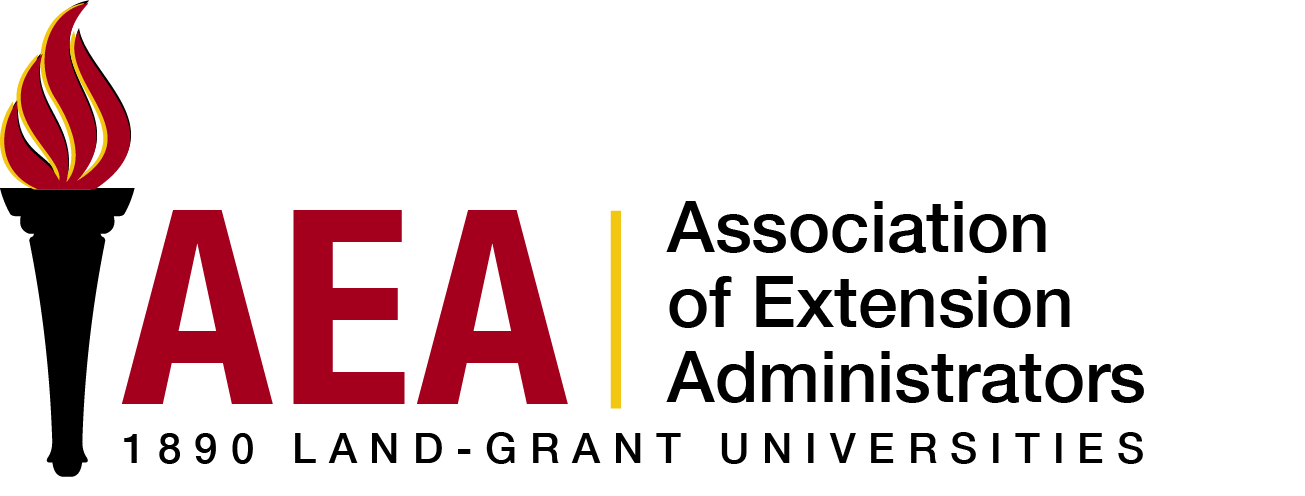Extension Today
News from and about the 1890 Land-Grant Extension SystemMessage from the Chair
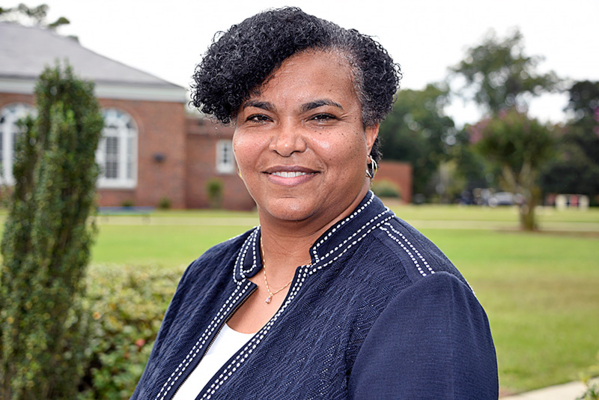
Vonda Richardson Extension Administrator, Florida A&M University
March is Women's History Month, and we celebrate the contributions of all women to improving the quality of life for all, as well as the conditions of women and girls.
Women, as program assistants, county agents, Extension specialists and administrators, have been in the forefront of Extension all across the 1890 system, in the United States and globally. This issue of Extension Today highlights those incredible women in 1890 Cooperative Extension and those in communities who have supported 1890 Extension. AEA celebrates this innovation and commitment of women.
Please enjoy this issue and continue to stay safe.
From Virginia to the White House First African American nominated for deputy secretary of USDA
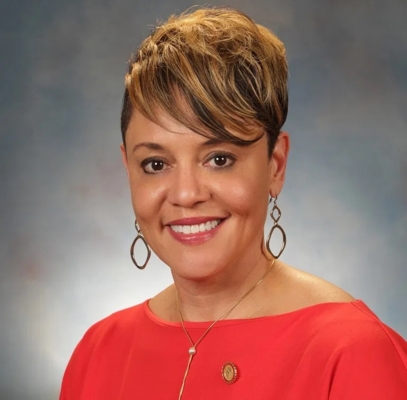
Provided by Virginia State University
Dr. Jewel H. Bronaugh is making history while forging an impressive path in the agriculture industry, one that has taken her from Virginia State University to the White House.
In January, Bronaugh was named as President Joe Biden’s nomination for deputy secretary of the U.S. Department of Agriculture (USDA), making her the first African American to be nominated for this position.
Bronaugh has served as the commissioner of the Virginia Department of Agriculture and Consumer Services (VDACS) since May 2018. She is the 16th commissioner of VDACS and the first African American woman in the U.S. to serve in this capacity. In that role, Bronaugh works to promote agriculture, ensure food security, address farmer mental health, and advance diversity, equity and inclusion in the industry.
Prior to VDACS, she served as dean of the College of Agriculture at Virginia State University (VSU) for five years. VSU is where Bronaugh, who grew up in Petersburg, got her start in agriculture as a 4-H Extension specialist with the Virginia Cooperative Extension (VCE) at VSU in 2001. Her work as an Extension specialist cultivated a new world in agriculture, as she rose through the ranks. While dean of VSU’s College of Agriculture, she oversaw the VCE at VSU, the Agricultural Research Station and the Department of Agriculture, giving her extensive experience in Extension outreach, research and academics.
Confirmation hearings are set for late March. If confirmed as deputy secretary, she will help oversee more than 29 USDA agencies and nearly 100,000 employees who serve more than 4,500 locations in the U.S. and abroad.
In a Tweet, shortly after her nomination, Bronaugh thanked Biden “for the opportunity to promote U.S. agriculture, helping to end hunger in the U.S. and abroad and preserving our nation's natural resources.”
Virginia State University is proud that this inspiring leader began her career at VSU and will be representing our nation at the highest level. Undoubtedly, Bronaugh’s journey will inspire other African American youth to pursue careers in agriculture and pave the way for more future leaders in this field and beyond.

A lifelong legacy

By Wendi Williams, Communications & Marketing Coordinator
In observance of Women’s History Month, the Alabama Cooperative Extension System at Alabama A&M University (AAMU) highlights the Virginia Caples Lifelong Learning Institute (VCLLI).
The VCLLI was named in honor of the late Dr. Virginia Caples, who served as an interim president, a distinguished professor and an 1890 Extension administrator at AAMU. Caples had a vision to establish a lifelong learning center for older adults. Today, her vision lives on under the watchful eyes of Danielle Rudolph, who was named the first VCLLI program coordinator in October 2020.
Upon filling her new role, Rudolph stated, “I know I have a monumental task before me to carry on the legacy of Dr. Virginia Caples. I look forward to continue working alongside, learning from and being a resource for individuals and families in Alabama.”
While the VCLLI focuses on older adults, it is a great resource for caregivers, family members, geriatric service providers and the general public. Its doors are open to anyone who wants to learn about timely issues that impact older adults. Take the time to check out upcoming activities and to learn more about the Virginia Caples Lifelong Learning Institute.
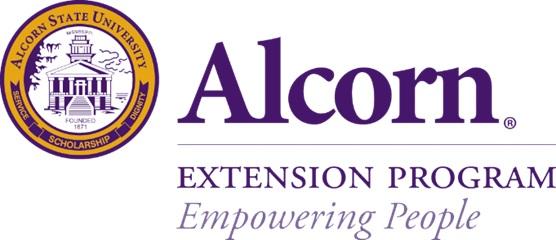
Women in agriculture: Cindy Ayers-Elliott trailblazes in innovation and entrepreneurship
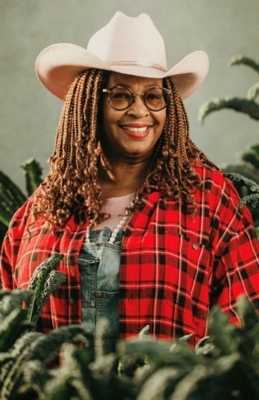
By Renita Lacy, Staff Writer
“I am a farmer,” is more than likely the first phrase that anyone who meets Dr. Cindy Ayers-Elliott will hear.
A graduate of Jackson State University, Ayers-Elliott is the CEO of Foot Print Farms LLC. Established in 2010, her 68-acre operation consists of specialty crops, vegetables and livestock and is located in the heart of Jackson, Mississippi.
“I do nothing traditional,” says Ayers-Elliott, describing the innovative specialty crops she grows, as well as the advanced farming techniques that she uses. “It’s not my grandmother’s farming techniques anymore. We look at using technology, innovation and the available resources in order to grow, supply and sustain our communities.”
Trading in her designer suits for overalls, Ayers-Elliott’s dream of becoming a farmer didn’t happen overnight. She started off with a small garden where she grew cherry tomatoes, lettuce and bell peppers; some goats that were good for benefitting the soil and land; and a year’s worth of research. Determined to expand her enterprise, Ayers-Elliott took it upon herself to visit agriculture institutions like Alcorn State University and her local U.S. Department of Agriculture's Natural Resources Conservation Service (USDA/NRCS) office to learn more about how to successfully manage a farm.
Today, she grows an array of natural fruits and vegetables, while also raising goats, chickens, cattle and horses. Her vivid pink bus, a trademark symbol for Foot Print Farms, is used to transport goods to various farmers markets and pop-up shops throughout the region. For more information, visit www.footprintfarmsms.com.

Central State University Extension salutes those professionals working in the growing industry
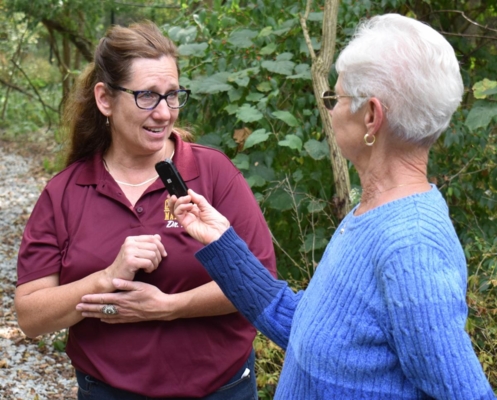
Growing up surrounded by a 1,500-head beef feedlot, thousands of acres of cropland, a grandfather who was an agriculture Extension agent and parents who were 50-year 4-H advisers, Central State University Extension (CSUE) Agriculture/Natural Resources Program Leader Dr. Alcinda (Cindy) Folck seemed destined to take her place within the agriculture industry.
“I have an aunt who used to always insist on planting the corn fields because her rows were straight and her brothers’ rows were not,” Folck adds. “I grew up surrounded by agriculture and women in agriculture. I appreciate the contributions of those who have gone before us and those who are coming with youth and enthusiasm.”
Folck has 30 years of experience professionally in agriculture and oversees the statewide implementation of agricultural and natural resources programming, as well as regional agricultural and natural resources Extension educators for CSUE. Programs focus on underserved and underrepresented populations, including minorities, refugees, veterans and counties with a high poverty rate, particularly in the Appalachian region of Ohio.
Prior to joining CSUE in 2019, Folck worked for 18 years with Ohio State University Extension in agriculture and natural resources and before then worked for 10 years with livestock commodity groups and soil and water conservation. She received her undergraduate degree in agricultural communications from Michigan State University and her master’s degree and doctorate in agricultural and Extension education from The Ohio State University. Communications within the agricultural industry has always been her goal.
For more information about any CSUE agriculture or natural resources program, contact Folck at afolck@CentralState.edu or call (937) 376-6101.

Enter to learn; depart to serve
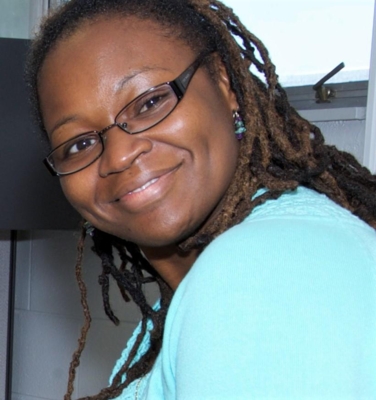
For Women’s History Month 2021, Delaware State University (DSU) Cooperative Extension honors Natasha Lamadieu, Expanded Food and Nutrition Education Program (EFNEP) supervisor.
Mary McLeod Bethune’s quote titles this article. Lamadieu admires and seeks to emulate Bethune as an African American woman who was fiercely dedicated to educating and uplifting others. Bethune’s quote also adorns the gates to Loockerman Hall on the DSU campus as a constant reminder of the university’s humble beginnings, yet mighty aspirations.
Lamadieu, a New York native, earned a Bachelor of Arts in teacher education and psychology from The City University of New York’s Medgar Evers College (the only historically black college in New York). Inspired by her mother’s health challenges and subsequent death at 58, Lamadieu made conscious choices regarding personal health and the pursuit of a career in nutrition education. When she saw DSU’s advertisement for an Extension nutrition educator, she thought the position aligned with her life goals.
“You can't really bring somebody back to life, but to save lives? To me, that was the closest thing to being a doctor,” Lamadieu said.
She joined DSU Cooperative Extension’s EFNEP in September 2011. Since then, she earned a master’s degree in educational leadership, is seeking an Ed.D. from DSU, and has become the supervisor for EFNEP. Lamadieu plans to use her Ed.D. to create fun, interactive nutrition and health curricula for individuals and families. When echoes of her mother’s voice ring in the testimonies of Lamadieu’s Zumba class participants, she uses those instances as teachable moments to share her story and encourage people to think positive thoughts and manifest healthier behaviors.

Women of Color summit empowers community and strengthens mentorship
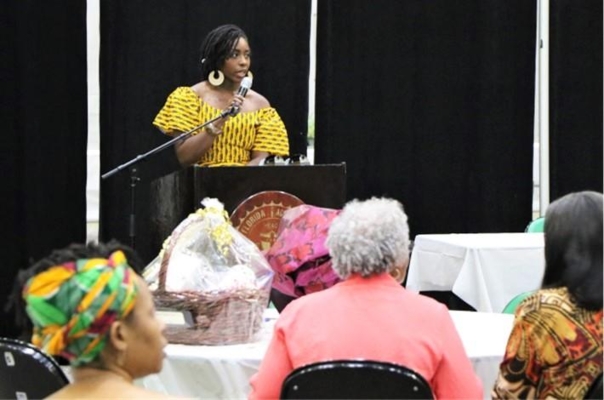
Florida A&M University’s Women of Color in Education and Extension Empowerment Summit was created in 2018 by Dr. Jenelle Robinson, associate professor and Extension educator. Students, community activists, academic administrators and local people came together under one bond – the strength of a woman.
Robinson stressed the goal of the summit was to empower women and girls, while highlighting the skills, strengths and gifts that women of color bring to the university and the community in various roles. One participant commented, “We definitely need more events like this in the community. Having women of color talk about their struggles and turning their struggles into testimonies, that’s why mentors come in handy. Having someone to relate to the same struggles you face in your life can be sort of a reliever in a way.”
The program continues to build rapport in surrounding communities, facilitate collaborations, as well as partner with organizations that are empowering all women of color. Each year brings growth, and it is easy to see that with the continued support of FAMU Extension, the university and the community, the summit will be around for a long time.

Committed to community

An advocate for her community, Faye Pugh Singh dedicated 30 years to Fort Valley State University's Cooperative Extension Program to serve families, youth and the state of Georgia.
Retiring in 2003, Singh first stepped into her role in 1973 as a concerted services in training and education coordinator. In this position, she worked with a U.S. Department of Agriculture (USDA) team to develop economic development and job opportunity programs for rural communities.
“We developed training programs and material and held workshops on a national basis for training educators to work with and train people on job seeking and job keeping skills,” she said.
Singh also received a grant through the National 4-H Council in partnership with the University of Georgia (UGA) Cooperative Extension Service to identify and work with rural high school sophomores and seniors. They exposed these students to the opportunities and requirements for attending a land-grant college or university. The program entailed staying on campus for a week at FVSU and UGA, as well as visiting classes and admission and financial aid offices. Singh worked with public school educators and Extension agents in Georgia to help recruit students and find scholarships to attend FVSU.
Singh later transitioned to a new role as program leader for youth and career development. She hosted the annual 4-H Sprouts Summer Camp from 1981-2002 and the annual National Secretary and Office Managers Workshop. In addition, she served as chairperson of the 1992 National Dr. Martin Luther King Jr. Holiday Commission Workshop. She also coordinated with Virginia Tech to receive a $200,000 grant from the Kellogg Foundation to enhance leadership skills among 4,000 rural indigenous leaders in rural Georgia.
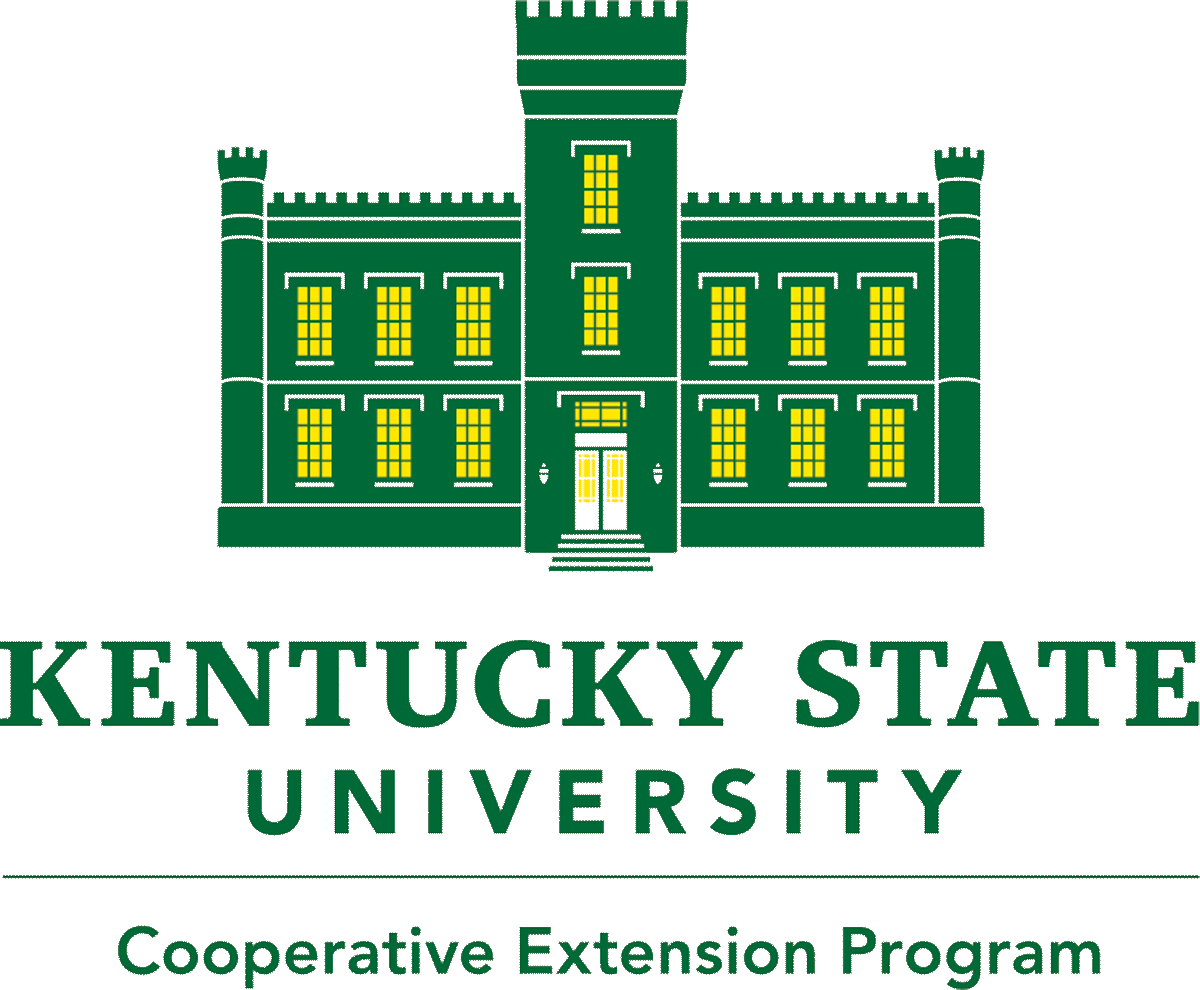
Dr. Nancy Dawson: Local, state, national and international agriculture ambassador
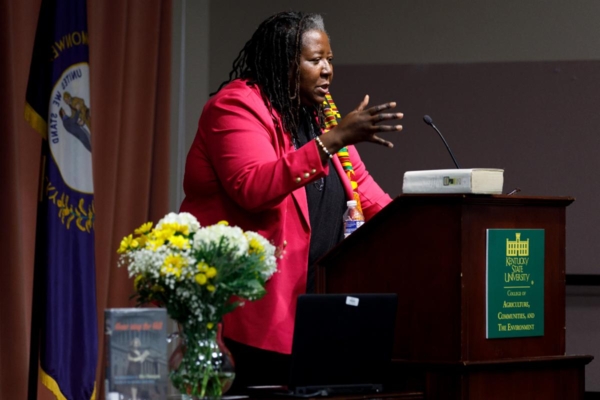
One of Kentucky State University’s long-standing community partners, Dr. Nancy J. Dawson, has worked for more than 20 years as a professor and director of African American Studies.
An avid proponent of agriculture, Dawson is a community activist, entrepreneur and professional organizer. She coordinates community partnerships to maintain the Russellville Urban Gardening Project (RUGP). Additionally, with KYSU’s Mobile Nutrition Kitchen, she has coordinated farm-to-table meals that benefit social efforts.
Her efforts are also international. Two decades ago, she worked with Ghana farmers to establish viable palm oil and cassava enterprises that now support multiple villages. More recently, she visited South America and consulted Afro-Columbian small farmers.
Dawson is an honorary commissioner of agriculture for the Commonwealth of Kentucky and served two consecutive terms on the State Extension Council. She currently serves on KYSU’s Agriculture Advisory Committee and the Council for Agricultural Research, Extension and Teaching (CARET). She has been recognized by KYSU as an Upcoming Minority Small Farmer and received the Small Beginning Farmer Grant.
Also a professional textile quilt artist, Dawson uses quilts to educate about the African American experience. Her next endeavor is launching Fiber Sistas, a partnership with RUGP and small Kentucky farmers to process and craft alpaca, sheep and rabbit fiber into value-added garments. For more information about Dawson’s RUGP, visit rugplogan.com.

Celebration of centenarian 4-H volunteer service to people and communities
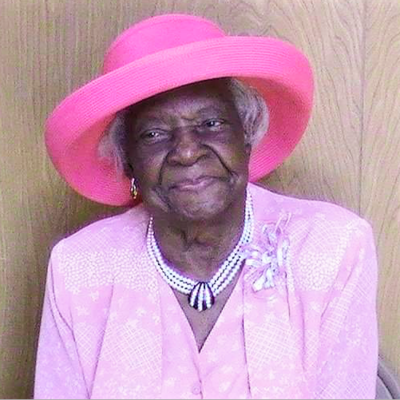
Are you fortunate enough to know someone who is 100-plus years of age? Della Mae Hathorn of Guthrie, Oklahoma, achieved centenarian status on Jan. 30, 2018. She continues to greater heights, recently reaching the age of 103 with vigor, laughter and a heart reaping with love of greater service to her community. She was born in 1918 to Will and Jessie Hudson Goff in the small town of Fallis, southeast of Meridian, Oklahoma. Meridian is located 7 miles south of Langston University.
Hathorn, who grew up on a small farm, met and married Howard Hathorn Sr. and together they were blessed parents to eight children. Howard Sr. gave her a quilting machine as a special gift because she loved quilting. She was dedicated to teaching this skill, among many other skills, to youth in and around her communities. Always wanting to give, at one time she was making and sharing 100 quilts per week. She and Howard were lovingly married for 74 years before his death.
In 1988, Dorothy Wilson, director and state program leader for 4-H Youth Development, family and consumer sciences and the Expanded Food and Nutrition Education Program (EFNEP), began the initial developments of 4-H programming at Langston University Cooperative Extension and Outreach.
“Mrs. Hathorn was the very first adult 4-H volunteer leader that supported Langston University 4-H," said Wilson. Being a volunteer was never a new concept to Hathorn. She had been involved with the VISTA (Volunteers in Service to America) program in the 1970s. Coincidentally, Wilson called around the community looking for a 4-H volunteer and luckily Hathorn answered the call. That marked the beginning of many outstanding years of service to people and communities.

Educating and building trust: The legacy of Sheryl Maxwell
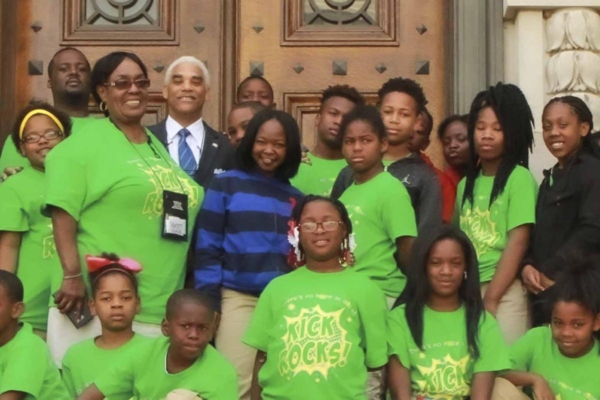
Sheryl L. Maxwell, known throughout Missouri as simply “Ms. Sherry,” is a longtime community servant with a demonstrated passion for empowering and meeting the needs of Missourians in the Bootheel and beyond.
Since beginning her career in early childhood education, she has focused her life’s work on finding solutions to address the needs of the state’s at-risk children and their families. Her most notable program, Kid’s Beat, at one time had an enrollment of more than 1,500 members and more than 30 clubs in all counties of the Missouri Bootheel. Currently, she works for the Lincoln University Cooperative Extension Charleston Outreach Center in Charleston, Missouri, providing leadership through program development and outreach.
In over forty years of servant leadership, Maxwell has been appointed by Governors Mel Carnahan, Bob Holden, Matt Blunt and Eric Greitens to serve on several committees and boards, including the Martin Luther King Jr. State Celebration Commission, on which she continues to serve.

A leader with a different perspective
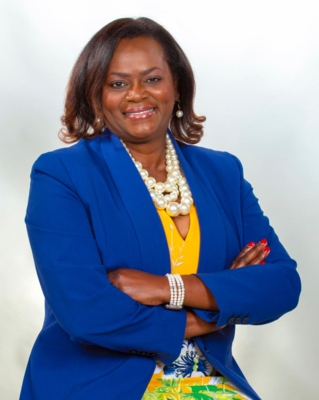
When Rosalind Dale began her Extension career in the 1990s, she had no long-term plan to become an administrator and a leader. But career paths can take interesting twists and turns, and Dale’s journey eventually landed her in North Carolina, where in 2015 she became the first female administrator of Cooperative Extension at North Carolina Agricultural and Technical State University.
“I didn’t set out to be an administrator at all,” said Dale, Ed.D., who holds a doctorate in adult and continuing education. “But it became clear to me through my work and education that management and leadership was the direction in which I wanted to move.”
Dale already had a home economics degree when she decided to pursue a second degree in human services administration followed by her doctorate, hoping to use her new skills as an organizational leader.
She began her Extension career in the Family Nutrition Program (FNP) with University of Illinois Extension in Chicago. She soon moved to the Expanded Food and Nutrition Education Program (EFNEP), supervising staff and making community connections in some of the most distressed neighborhoods in the city. EFNEP made her realize that Extension work was her future; sharing her expertise in a way that helped people in need would become a calling as much as a job.

Grimes County Charm and Sewing outstanding leader

Ann Mitchell has given herself and her time as a Prairie View A&M University volunteer in Grimes County 4-H for more than 20 years. During that time, she's guided 4-H'ers through animal projects, clothing, textile projects, food and nutrition projects, and photography.
Mitchell, known as "Ms. Ann," started working with 4-H in 1998 as a parent volunteering for her daughter. She has volunteered for several 4-H clubs in Grimes County over the years, including Anderson Jr. 4-H, Equine Club, Anderson Sr. 4-H, and Charm and Sewing, in which she became the club manager in 2003. Her positions include chairperson, taskforce, vice president and president for the Grimes County Adults Leader Council. Working as a club manager over the years, Mitchell has dramatically impacted the kids in her county by teaching better leadership skills, having a better outlook on life, and providing opportunities to do things on county, state and national levels.
In addition to 4-H, Mitchell also volunteers with the Anderson-Shiro FFA organization. She has been recognized at the state level for outstanding leader/volunteer with both organizations: 4-H and Anderson-Shiro Future Farmers America (FFA). She is known for her patience and love of youth. Mitchell is always present to answer questions, volunteer or give a hand. With a bright green fire burning under her shoes like none other, she is ready to help build up the next generation of leaders.

Sumter farmer feeds the minds of communities through food, faith and family
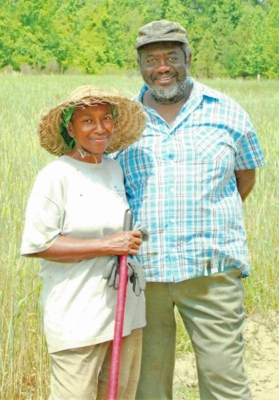
Grounded in the roots of her family heritage, Fathiyyah Mustafa is a pioneer in South Carolina's agricultural industry, committed to bringing a healthy way of living to all. The Sumter native is the president of Sumter Cooperative Farms Certified Organic Vegetable Growers (SCF Organic), a cooperative of farmers and community members whom Mustafa mentors and educates about the life-changing benefits of eating organically and the importance of sustainable agriculture.
Though she did not initially intend to become an agriculturalist, growing up on a small family farm helped her garner the skills she would later use to start a new tradition and create a family legacy. She credits her grandmother's guidance for her love of farming and family. "She taught me how to tend to gardens and always reminded us to grow enough food to help our neighbors," said Mustafa.
With nearly 40 years as a horticulturist, it is safe to say her grandmother’s teachings established roots that branched into a lifelong family commitment. "Farming is my calling," said Mustafa. "It was my grandmother's dream to leave a legacy for our family, and I am living that dream."
In 2003, she and her deceased husband, Azeez, became the first produce farmers in South Carolina to become certified organic by Clemson University. She praises many agencies for their support and guidance in helping them to expand their farm operation.
“We’ve had a lot of help along the way,” said Mustafa. “Extension programs like SC State University 1890 Research & Extension were very instrumental in helping us when we first became a cooperative.”

Women's History Month spotlight on Sarah Sims
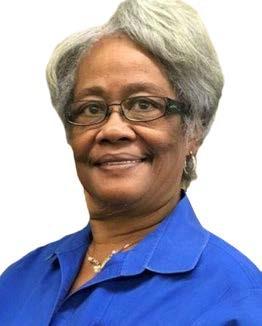
During this Women’s History Month, we highlight the work that Sarah Sims is doing in the area of family and consumer sciences (FCS) and the Supplemental Nutrition Assistance Program (SNAP-Ed).
For 44 years, Sims has served the citizens of Madison Parish through her work as a FSC and SNAP-Ed nutrition educator. “I have never had a day that I didn’t want to go to work,” recounted Sims. “I enjoy most of everything about my job. Being able to interact with people and learn daily. It’s very rewarding for me.”
Sims says her fondest memories working at the Southern University Ag Center are bringing youth to the Southern University campus to participate in the Youth Expo.
“I really loved the Youth Expo,” said Sims. “We live in a very small town and some youth don’t get a chance to travel outside of town. When we would bring the children to the campus, you would hear them say, ‘Wow’ or ‘Awesome!’ Over the years, I have had the opportunity to work with entire families. I worked with the mother, then the mother’s children and now the grandchildren.”
She even created a Wall of Fame, which contained the photos of students from the parish that have attended and graduated from Southern University. Although the pandemic has stopped Sims from conducting face-to-face visits with her constituents, she still enjoys her work. “I am 70 years old, but I feel like I’m 6 inside. I’m going to continue to learn something new every day,” said Sims.

Extension professor teaches students, prisoners, oversees community garden
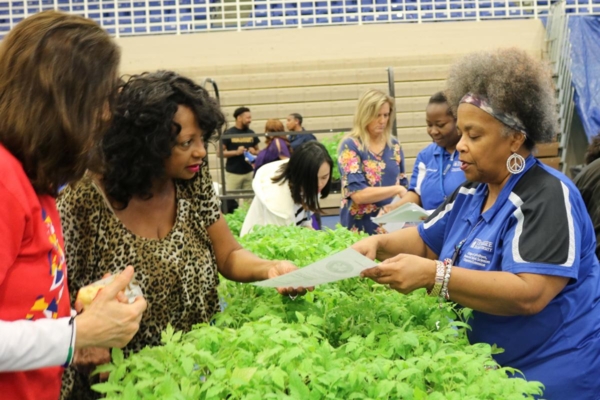
If the mythological goddess Demeter, who rules over harvest and agriculture, were alive and walking today, she would probably be Dr. Arvazena “Zena” Clardy, a professor at Tennessee State University’s College of Agriculture.
The College of Agriculture nominated Clardy to represent the college for Women’s History Month. Here’s why.
Clardy, a TSU alumna, is well-known for her research in unique vegetables that benefit the human health system such as bitter melon, which can aid in the prevention of diabetes. But she is probably better known for her work overseeing TSU’s community garden. She also teaches prison inmates agriculture in an outreach program.
The pandemic and tornado interrupted this year’s community garden, but Clardy and her colleague Sherry Crudup are working hard to see if they can offer garden plots by this May. Clardy also oversees the harvest of young tomato plants every year that she freely gives away to anyone at TSU who is interested in growing them in their own gardens.
She publishes literature about growing vegetables successfully, creating ideal soil conditions and using alternative pesticides to protect one’s crops. She came to agriculture the roundabout way, initially working toward an engineering degree. After working at the Tennessee Valley Authority for 10 years, she pursued a plant science education at TSU. She earned her bachelor’s and master’s degrees at TSU and her doctorate at Alabama A&M only to return to TSU to teach countless students about the subjects she herself loves.

Passion for possibilities, love for what you do
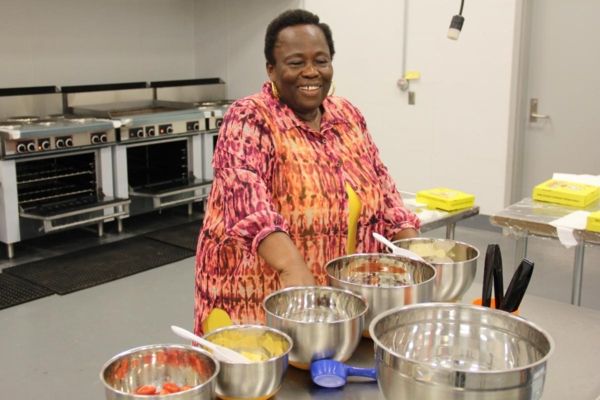
By Jacquelyn Carlisle
Having passion and love for what you do is the key to success. Dr. Eunice A. Bonsi is extraordinarily successful and has been for many years at Tuskegee University. She started at Tuskegee University in 1983 as a technical research assistant, attended Penn State in 1997 to complete her doctorate in family and consumer sciences and returned to Tuskegee in 1990.
Her love for her family, husband Dr. Conrad Bonsi, and their three children made her determined to complete her doctorate in three years. She is a professor in the Food and Nutrition Sciences Department, working in the Tuskegee University Cooperative Extension Program as a family life and nutrition specialist. Her passion for food and how it gets to the plate makes for successful programs.
“You have to know where food comes from, therefore it has to be a working relationship with food and nutrition with agriculture,” Bonsi said. “This is the model that has been used at Tuskegee for years, working together and not in isolation.”
She has made herself available to work with farmers and others to develop a love and respect for food. “By having a respect for food and knowing where it comes from, there should be less wasting of food,” she continued.
Bonsi feels that community outreach is just a small part of Extension and providing the application of research results is the base of Extension. Extending the information out to the community and putting it in language that can be used is essential for a successful program.
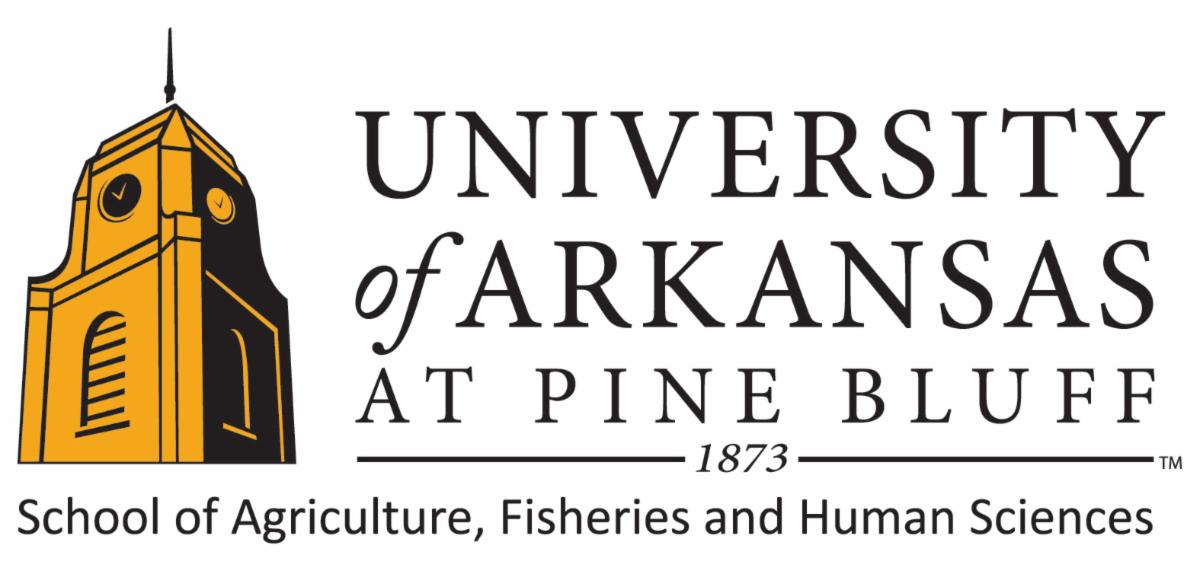
Kandi Williams brings passion for helping others to career in Extension

By Will Hehemann, Writer/Editor, UAPB School of Agriculture, Fisheries and Human Sciences
In her 17-year career with the University of Arkansas at Pine Bluff (UAPB), Kandi Williams, Extension program aide, brings a family commitment to community service to her work. She credits her mother, who worked for the University of Arkansas Cooperative Extension Service, and her great-grandmother for influencing her career path and instilling a passion to help others.
Since 2016, Williams has coordinated the university’s efforts in educating African American forest landowners about how to properly manage forestland to improve its sustainability and value. The overarching goal of the “Keeping it in the Family” (KIITF) Program is to address historic barriers to African American success in forestry and to help landowners retain their family land.
“The greatest reward is seeing landowners implement conservation practices learned from the services we provide,” she said. “This program encourages family dialogue and landowner empowerment by engaging and educating the next generation on the importance of preserving and maintaining their family's legacy.”
Williams was originally hired to provide outreach education and technical assistance to socially disadvantaged farmers and ranchers in southwest Arkansas. She provided risk management education and was responsible for building and retaining relationships between U.S. Department of Agriculture (USDA) agents and landowners.
“My favorite part of working in Extension is helping others,” she said. “Each day is different and brings about new challenges and opportunities.”

Supporting community member becomes educator
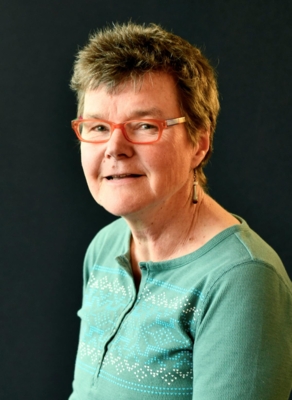
This Women’s History Month, University of Maryland Eastern Shore (UMES) Extension salutes Henriette den Ouden, who was once just a part of the community that supported its programs. She is now one of the UMES Extension educators who supports the community.
It was only two years ago that den Ouden was attending events at UMES as a community member. An expert in her own right, she is co-owner of Habanera Farms, where she “grows teas for people looking for health and good taste.” Today, with UMES Extension, she is busy offering informative webinars that attract the attention of herbal enthusiasts all across the country and beyond.
She became interested in working at the university, with the Small Farms Program specifically, after spending time consulting with the team about herbal matters as they developed plots of ginger, peppermint, lavender, spearmint and lemongrass on the university’s 382-acre Research and Education Farm.
Den Ouden brings more than 20 years of experience to the table. She holds a Master of Science in herbal medicine from the Maryland University of Integrative Health and is a past board member of the American Herbalist Guild.

Extension director’s path a two-decade journey from classroom to boardroom
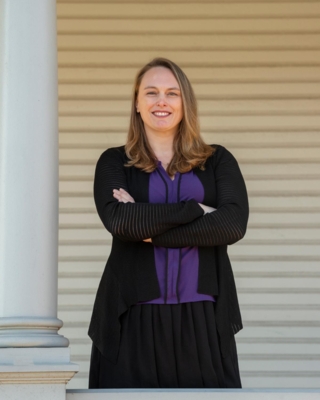
When Dr. Ami Smith, director of Extension at West Virginia State University (WVSU), first set foot on the campus in 1998, she was a single mother with a full-time retail job and a goal of obtaining an undergraduate degree in biology. More than two decades later, her path as a Yellow Jacket has led her from the classroom to the laboratory to leading outreach efforts that are impacting people all over the state.
“At West Virginia State, Extension is improving agricultural practices for the home gardener, as well as the small farmer; assisting people with great ideas to start their own businesses; helping grandparents navigate the difficult realities of raising their grandchildren; revitalizing blighted small communities; and uplifting children academically, physically and emotionally,” Smith said. “Leading the efforts of our wonderful Extension educators is a privilege.”
While Smith seems to have found her niche in administration, she didn’t begin her journey at WVSU with that endgame in mind. She arrived on campus as a biology major with the goal of working in medicine or forensic science. After completing her education, including a Ph.D. in biosciences, Smith eventually found herself leading WVSU’s outreach efforts.
Under her leadership since 2014, WVSU Extension Service programs have broadened their scope in youth development, family and consumer sciences, community and economic development, and agriculture and natural resources, with programs reaching people in all 55 counties of West Virginia.
